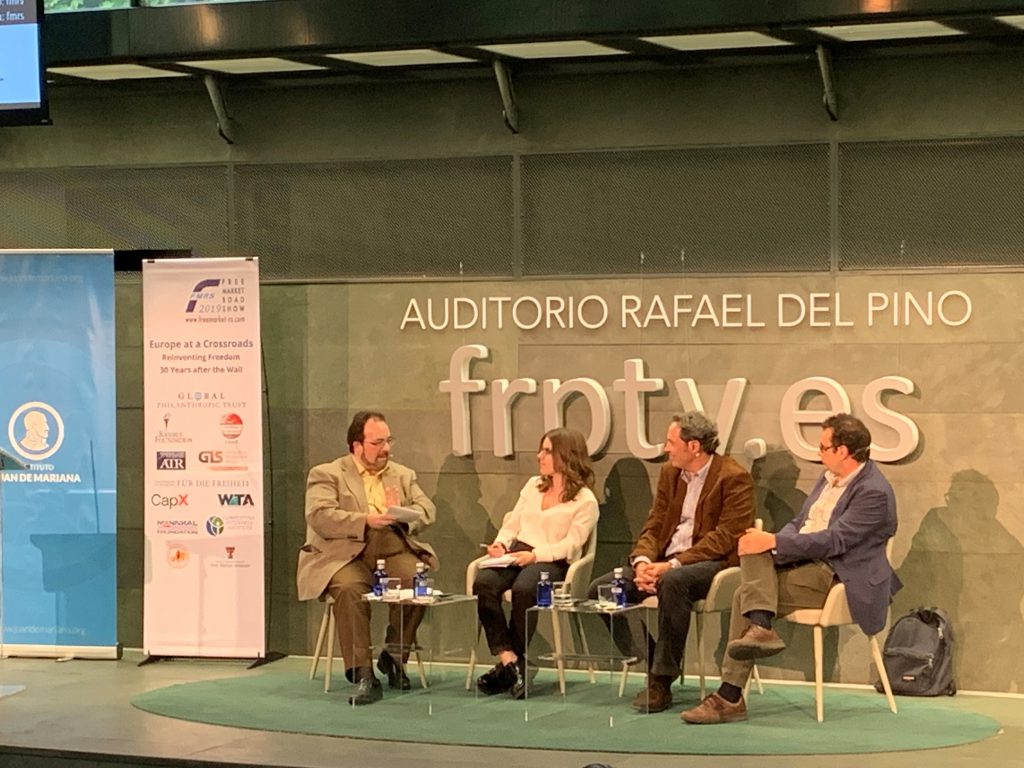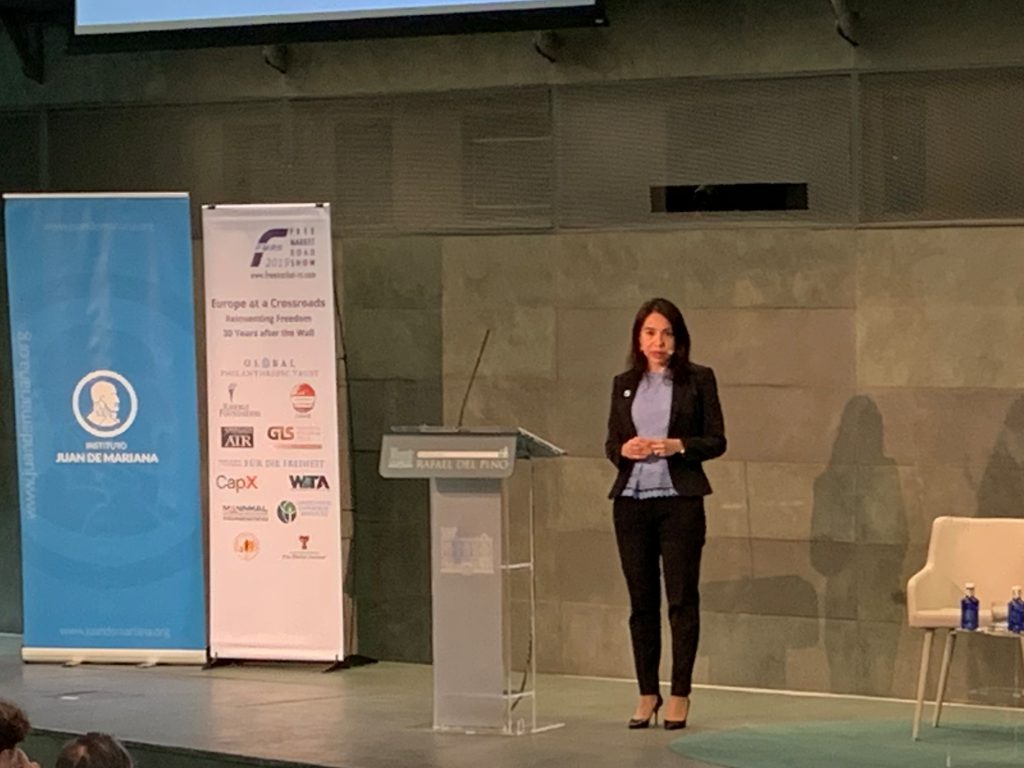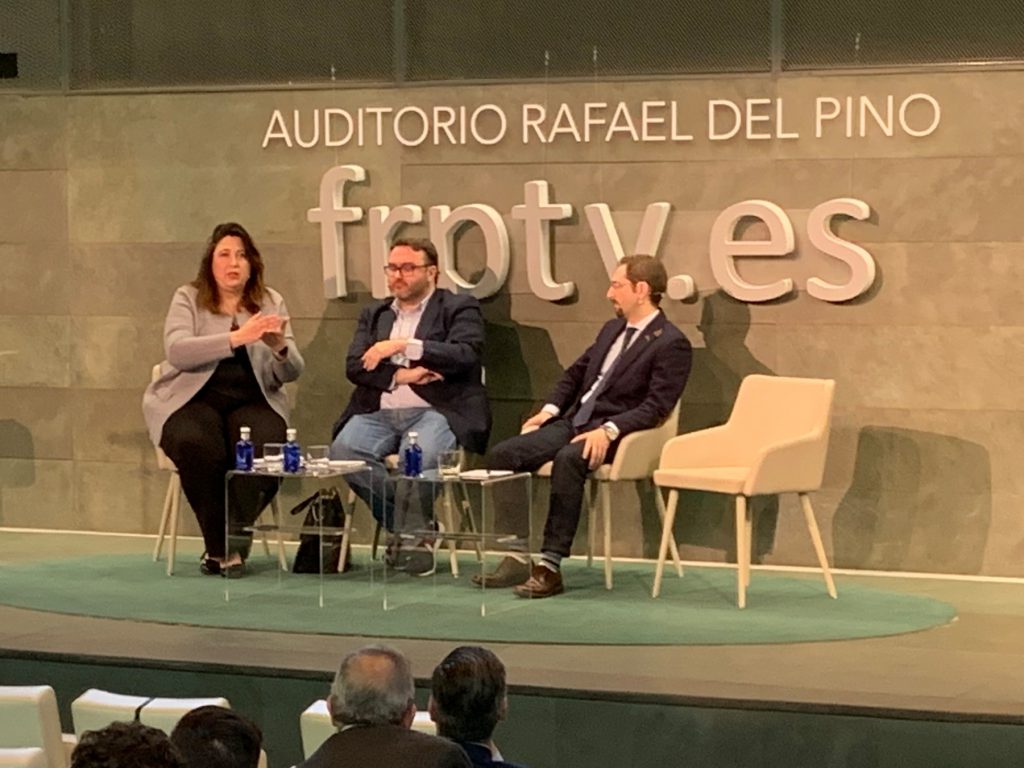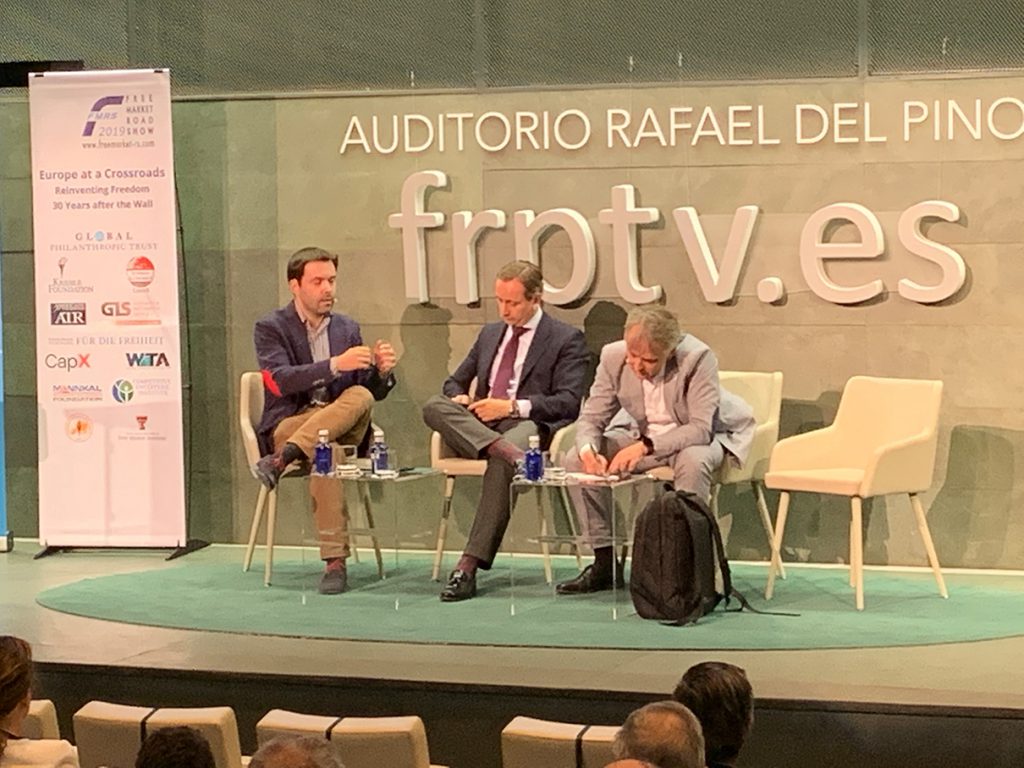
Report: Free Market Road Show in Madrid 2019
FMRS Madrid: “Unfair competition is a myth”
Madrid received the Free Market Road Show just after an election that had ambivalent results. While the chavista party of Podemos had lost some of its support, the formation of a free market leaning government was not on sight. In this context, the discussions held at the FMRS Madrid turned out to be very important and relevant in moments of political uncertainty.
As usual, the Madrid stop was organized in close cooperation with Instituto Juan de Mariana and Fundación Rafael del Pino. And the discussion about regulation was the highlight of the event.

Cyntia Ortíz de Toledo, the public affairs manager of JTI, denounced hyper regulation a “one of Europe’s worst problems.” In this sense, she detailed how Spain is positioned in certain rankings. In the 2019 Nanny State Index, Spain is 23rd of 28th (being 1st the worst and 28th the best). Incidentally, Finland, Lithuania, and Estonia occupy the shameful Nanny podium while Germany is the best.
What does the Nanny State Index measure? The best and worst places in Europe to eat, drink, smoke, and vape.
In any case, Ms. Ortíz Toledo tied her critique of hyper regulation with a the issue of Plain Packaging (PP) in the tobacco industry. According to her and serious studies on the results of these policies in countries like Australia, the results have been appalling.
Speaking of Plain Packaging, these are norms and regulation for the tobacco industry, which standardize the appearance of cigarette packages by requiring the removal of all brand imagery, including corporate logos and trademarks. Packages can only display a standard background color and manufacturers are permitted to print only the brand name in a mandated size, font and position. Other government-mandated information, such as health warnings, remain.
“When brands are taken out of the equation due to PP,” told Ms. Ortíz de Toledo, “the only factor that remains is price.” What we witnessed in Australia was a tragic case of downtrading. Why tragic? Because, enabled by PP and lack of proper branding, the cheapest product ends up being the illegal one. In some cases, counterfeited cigarettes financed terrorist organizations. What is more, 15 per cent of the tobacco in Australia is illegal.

The following deregulation panel dealt specifically with the issue of the sharing economy.
Rosa Guirado, a lawyer by training and founder of Legal Sharing, expressed that “unfair competition is most of the times a myth. The more loyal and fair competition is, the more it bothers.”
And according to Ms. Guirado, “the most harmful regulation is the one that creates confusion.”
In this regard, Manuel Llamas, who is editor-in-chief of Libertad Digital, expressed that “regulations are merely norms politicians invent in their own benefit. They do not aim to help the people but they are just a tool to gain votes and look good.” That is why “regulators are always captured, usually for electoral reasons.”
Speaking specifically on platforms like AirBnB, Mr. Llamas claimed that regulations against them mean “that people cannot use their own homes as they wish. It is very ironic that the left seems to be in favor of big capital and corporations when they want to impose regulations and prohibitions to simple owners who want to rent their homes.”
“Hotels owners always say they comply with regulations. But they do not ask for less regulation. They want regulations because they harm competition,” Mr. Llamas concluded.

The Free Market Road Show is the biggest libertarian event in the world. Follow us on Facebook and on all social media with the hashtag #FMRS19 . Do not forget to check our 2019 tour and subscribe to our newsletter at https://2019.freemarket-rs.com
